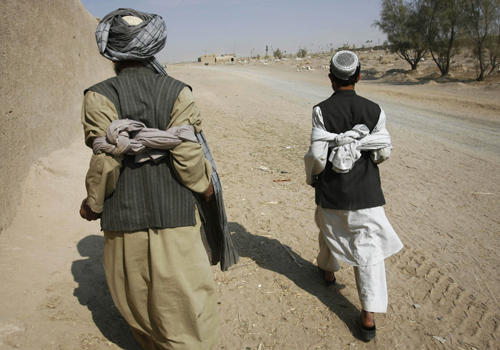In October 2006, a piece I wrote was posted on Counterpunch.org (
http://www.counterpunch.org/kitson10232006.html), entitled, "Canadians in Afghanistan: Bloody, Unbowed, Stoned?". It was written in the form of a memo to Rick Hillier, Chief of the Defence Staff, and in one of the many digressions, I wondered what had become of the prisoners taken by Canadian troops during Operation Medusa, really wondering whether they had been afforded the rights of Prisoners of War, as described by the Geneva Conventions to which Canada has subscribed.
I didn't hear back from Rick, not surprisingly, so I asked his alleged boss, then Gordon O'Connor, Minister for Defence, a guy who seemed a few Afghans short of a drug deal. He sent me a flatulent email that answered none of my questions, but in the meantime I also heard, in response to my posting, from an impeccable source who said that at least one of the prisoners taken by Canadians, before Operation Medusa, had ended up in Guantanamo. I'm not a lawyer, but to me, that's a pretty clear case of what I understand to be "a grave breach of international humanitarian law"; a.k.a., War Crime. Anyone who thinks that Guanatamo is OK should visit the ACLU files containing FBI eyewitness accounts(
http://www.aclu.org/safefree/torture/27807lgl20070102.html).
A readable and horrific extract can be found at the Harper's Magazine website,
http://www.harpers.org/archive/2007/03/0081421.
These accounts can be measured against the Geneva Conventions (
http://www.icrc.org/Web/Eng/siteeng0.nsf/html/5ZMGF9) , which state in part:
"Grave breaches to which the preceding Article relates shall be those involving any of the following acts, if committed against persons or property protected by the Convention: wilful killing, torture or inhuman treatment, including biological experiments, wilfully causing great suffering or serious injury to body or health, and extensive destruction and appropriation of property, not justified by military necessity and carried out unlawfully and wantonly."
So, I applied, under the Access to Information Act, for the following information:
1. How many prisoners were taken by Canadian troops during Operation Medusa?
2. In what jurisdiction are those prisoners now held?
3. Where are the records of these prisoners kept?












